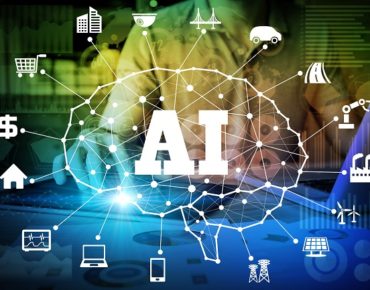OMG! International Group Wants to Drive Standards for AI ‘Foundational Capabilities’

On opening day of this week’s AI World Conference today in Boston, the Object Management Group (OMG), an international technology standards organization, said it has begun work on a baseline of interoperability, interchange and other AI “foundational capabilities” in models, languages and data. The idea is free up technology vendors and end users from low-level interface work and let them focus more on building advanced machine learning and deep learning applications.
“When a technology area reaches a certain degree of maturity, standards enable innovation rather than impede it,” said Dr. Richard Soley, OMG’s chairman and CEO. “With defined AI standards, organizations won’t have to constantly worry about the plumbing of a system or reinvent platform techniques and tools.”
He added that across multiple sectors, including finance, space, robotics, manufacturing and healthcare, conflicting models, languages and data formats “hinder the progress of applying AI.”
 “If AI models can’t be used together or do not have consistent semantics, organizations will get the wrong results,” Soley said.
“If AI models can’t be used together or do not have consistent semantics, organizations will get the wrong results,” Soley said.
OMG’s newly formed Artificial Intelligence Platform Task Force (AIPTF) has been chartered with recommending building blocks underlying vision recognition, analytics, machine learning for the industrial IoT and other AI-related technology. OMG said it envisions a roadmap for AI standards, starting with an AI Reference Model that various organizations, i.e., AI suppliers, AI users, government entities and so on, will adopt.
In its Artificial Intelligence and OMG Standards White Paper, the organization made the case that the the time is right for the AI industry to adopt standards. As AI technology has matured, OMG said, “customers discover the need for integration, interoperability and migration from one system to another. At the same time, suppliers need to attract a broader clientele. …it becomes clear that more formality and governance are needed.”
Problems cause by lack of standardization, OMG said, include the opaqueness of deep or unsupervised learning algorithms impacting reliability, maintainability, reuse, transparency and respect for privacy. Also, the organizations said that without standard interfaces and well-defined ontologies, “the robot industry cannot evolve toward flexible, upgradable systems assembled from interchangeable modules.” And while Google’s new dataset search capability allows scientists to find datasets, and the World Wide Web Consortium (W3C) has developed a data catalog vocabulary (DCAT), OMG said “use of those datasets is hindered by the lack of associated AI-specific metadata.”
OMG said it adheres to an open process implemented through subgroups, such as the AIPTF, which are open to all members. Organizations of all sizes are eligible for OMG membership, and each organization has one vote in the subgroups to which it contributes. Government and academia participate in the process under the same terms – “this is important since researchers in universities or national laboratories often do the leading-edge work in areas such as AI,” OMG said.
OMG said it envisions an AI standards roadmap that will begin with an AI Reference Model similar to the seminal work that NIST performed to create its Cloud Computing Reference Architecture, the organization said, designed to categorize cross-domain vs. domain-specific capabilities, platforms and tools. Once this model is agreed upon, OMG said, then each type of organization (AI suppliers, AI users, government entities, etc.) can determine which part of the model their initiatives will address.
Organization interested in participating are invited to write to ai-chair@omg.org and to visit the AI subgroup’s wiki at https://www.omgwiki.org/AI.











